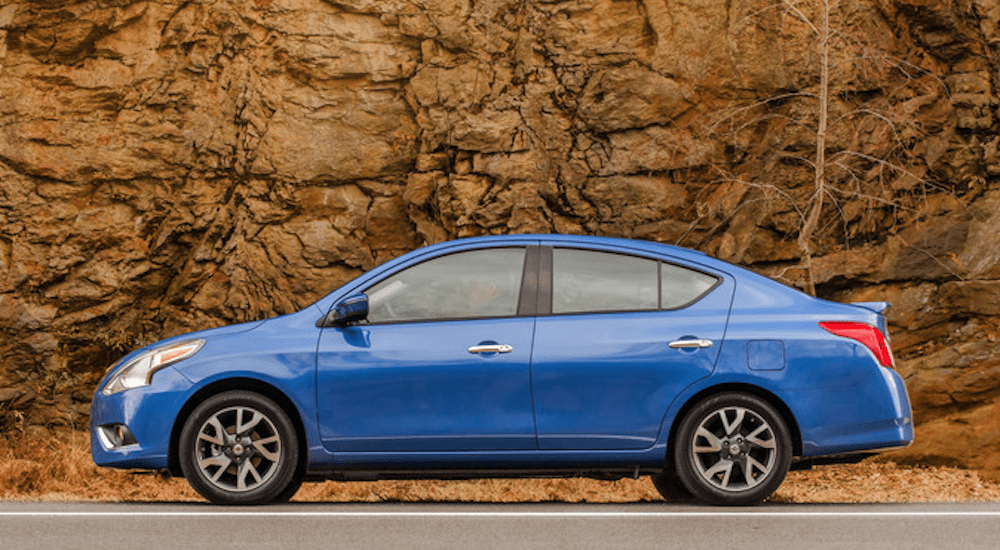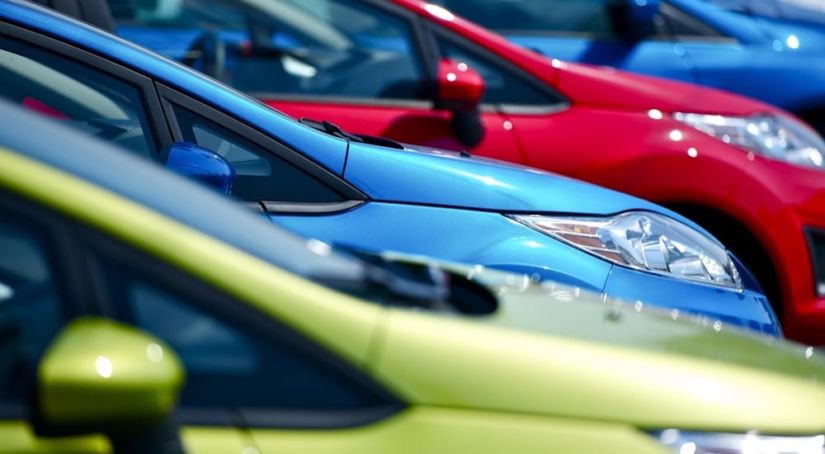Unlike other assets which commonly increase in value, a car, even a used car, continues to depreciate. They will continue to depreciate all the way down to their raw materials, which is the basic scrap metal. Also, unlike other assets, a car’s depreciation is usually only felt at the time that it is sold or trade in for an upgrade, sometimes catching the owner by surprise. Being a responsible, financially savvy consumer means doing your research so that you are prepared for the ups and downs of car ownership. In this modern age of internet access, it is even easier than ever to prepare yourself before purchasing new or used cars.
So how fast does a car depreciate? Well, it really depends on the vehicle as some models depreciate faster than others. However, there are some approximate guidelines that will have you leaning more and more towards buying a used car. Within the first year of ownership, a new car will depreciate between 20 – 30%. Additionally, you are looking at a rate of approximately 15 -18% each year. After five years the car has lost up to 60% or more from their initial value. At 10 years, the car is worth about 10% of its original cost.
There are some other depreciation factors to remember when deciding on a used car. Depreciation rates can fluctuate. For instance, as gas prices go up the value of SUVs, large trucks, and other “gas guzzling” vehicles will take a dive. Returned lease vehicles can also be an unknown variable. When several of the same models are returned around the same time, they flood the market causing their value to decrease due to the large supply. Plus, when a car is leased rather than purchased, it can drive up the rate of depreciation. These are often luxury vehicles and their drivers want a lot of features, but they can be purchased at a deep discount. This is another instance where your research will greatly help you in the decision-making process.
Calculating Depreciation
Calculating depreciation accurately can be challenging due to the different variables that affect depreciation. There are many formulas to go along with many different scenarios. For example, straight-line depreciation is calculated by subtracting the salvage value from the car’s cost. Then you divide by the number of years of useful lifespan, which can be found via the IRS. However, there are a plethora of online depreciation calculators to help you and make it a lot easier. Edmunds.com is a recommended calculator, but there are many others.
Strategies to Decrease Depreciation
The first strategy to overcoming depreciation is to buy a used car. Most financial advisors will tell you to save your cash and purchase a used car. The hit to your credit, the potential debt, and the depreciation create a bad investment when it comes to purchasing a brand-new car. If you are the type of car owner that drives your car until there is no value left, then a brand-new car may be a good option for you. However, many people change vehicles every few years. Buying a used car, even a year old will help you avoid that initial 20% to 30% in depreciation.
Before you decide to purchase, you should research resale value on the models you are interested in. This research should give you a good idea on what you should be spending on a used car. You can also utilize depreciation calculators, like Kelley Blue Book’s 5-year cost to own or Edmunds.com. You will get an approximate depreciation value over the length of time that you plan to drive your used, but new to you, car.
Quality maintenance and record keeping play an important role in preserving your used car’s value. By driving responsibly (i.e. safe speeds, protecting it from the elements, avoiding collision and other damage) and being on time with scheduled maintenance, your used car will stay in good condition. Keeping accurate records of maintenance will ensure that you stay on track with upkeep — the better the condition, the slower the depreciation.
Customization can greatly impact depreciation. Avoid customizing a new vehicle to the point that it only fits your style, especially if you change vehicles often. Bold colors and expensive add-ons are not for everyone. They will not only cost you more money at the initial purchase but will also increase your rate of depreciation. Basically, over the course of your ownership, you will be taking a double financial “hit.”
Another option to avoid depreciation costs is to lease a new car. Each month you will pay the depreciation cost, plus taxes and fees. Leasing helps you avoid the initial depreciation costs associated with purchasing a new car and long-term depreciation if you like to change vehicles often. Additionally, drivers that enjoy luxury cars with the “latest and greatest” models that are high on features can benefit from leasing. However, this can be a negative option if you don’t want to trade your car in every few years or decide to purchase it at the end of your lease term. It is also comparable to renting a home. You are living in it and getting to use it with lower maintenance costs, but you aren’t investing your money into a tangible asset.
Vehicles with Lower Depreciation Rates

Depreciation does vary based on make and model, some depreciating at a slower rate than others. A study conducted by iSeeCars found the ten cars with the smallest depreciation over the first five years.
1. Nissan Versa 33.3%
2. Honda CR-V 31.9%
3. Toyota Tundra 31.8%
4. Honda Fit 31.4%
5. Subaru Impreza 27.4%
6. Toyota 4Runner 27%
7. Jeep Wrangler 26.8%
8. Toyota Tacoma 26.3%
9. Jeep Wrangler Unlimited 24%
10. Nissan Frontier 22.5%
While these vehicles had the smallest depreciation compared to other makes and models, they are highly popular models, with simple, classic body styles. There are also many other variables that should be taken into account, for example, customized color choices and poor maintenance would most likely increase the depreciation percentage.
Used Cars – Sometimes Your Best Bet
Sometimes buying a car cannot be avoided and usually purchasing a used car is the most financially sound decision. There are a few things to do before buying a used car. First, set a budget and consider how you are going to finance your purchase. Most financial advisors would suggest saving up and paying cash, but that is not your only option. Next, do your research and define what you want. Clearly line out your wants and needs in a car. Make sure to look at all the aspects for the car you are interested in (i.e. gas mileage, recalls, resale value, depreciation rate, etc.). Pull a Carfax and test drive before you buy. Lastly, be willing to walk away.
If you have set a budget and figured out exactly what you want, do not settle for anything less. Sometimes if you are willing to walk away it will help you get a better price and sometimes it won’t but either way, you do not want to end up with buyer’s remorse. There are some amazing tools online to help in your research. It may be a cliché, but knowledge truly is power.



